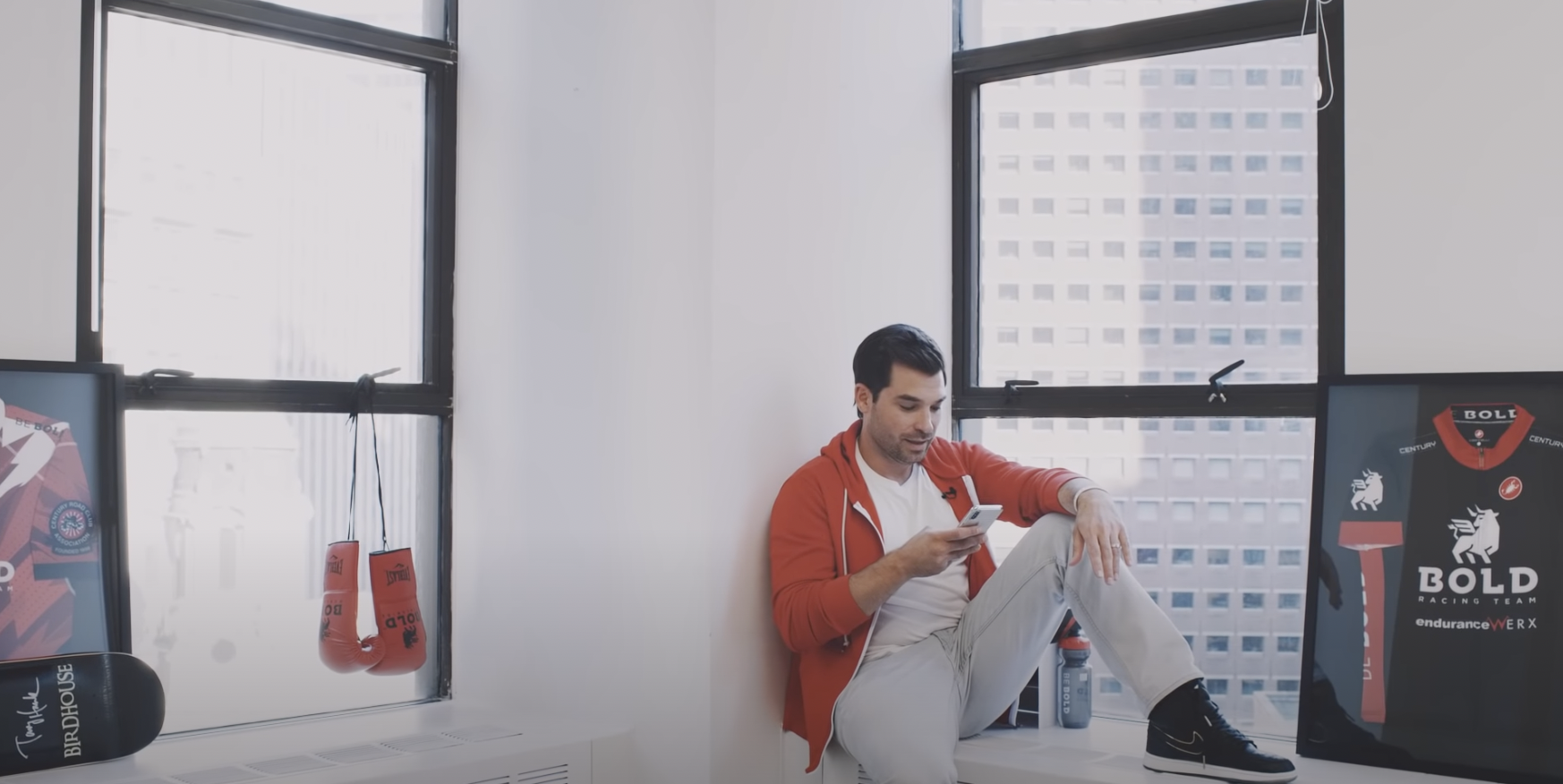7 Reasons Why Your B2B Sales Techniques Always Fail
So, you’re using supposedly foolproof B2B sales techniques only to not close more deals in less time? Even worse, are you making it through the entire sales cycle only to get hit with a ‘Thanks, but no thanks?’
First of all, you’re not alone- only about 50% of sales teams hit their quotas each year. And of those teams who make quota, the majority of sales are made by a small minority of salespeople.
What gives?
The hard truth is that most B2B sales techniques are simply ineffective, and of those that are effective, most sales pros simply botch their execution.
Moreover, you might think that you’re doing all the right things and using all the right techniques but still fail because execution is everything!
To help combat this problem, we’re sharing 7 reasons why your B2B sales techniques aren’t doing you any justice. Additionally, we’re also sharing changes you can start making today to instantly increase the potency of your selling techniques.
Unfortunately, unless you start making changes, you’ll continue to get the results that you’ve always gotten!
What Are B2B Selling Techniques?
Think of selling techniques as sales tools that you pull out during different phases of the B2B sales process.
If you’re using effective techniques and executing them correctly, then they’ll help you close more deals in less time.
Unfortunately, when it comes to techniques, most sales professionals are totally in the dark. More specifically, most sales pros either:
- Have never been taught the simple, straightforward techniques that actually work; or
- Completely botch the execution of truly effective techniques.
Ultimately, without the right techniques and/or terrible execution, it’s nearly impossible for sales teams to achieve their sales goals. And if they do hit their goals, they’re likely spending an absurd amount of time trying to close deals!
And while many sales pros are aware of the fact that their techniques aren’t doing them any justice, very few ever consider whether or not they’re sabotaging themselves with terrible execution.
Execution Is Central to Technique Success
The hard truth is, you might be using all the right techniques, but completely botching the execution.
At the end of the day, you can have all the right techniques in your sales toolbox, but if you execute them poorly, then you’ll get absolutely nowhere.
Let’s say that you’re a new server at a high-end restaurant. You’ve been trained on exactly what to say and do in order to create the best experience for customers so that they spend more money. While you know exactly what to do and say, you show up looking shoddy, have zero enthusiasm in your voice, and completely disengage from customers. Moreover, you’re using pristine techniques while executing them as if you’re a zombie.
Never forget that customer experience is central to success, and that proper execution of effective sales techniques is what creates a positively unforgettable experience.
In fact, you might not have the best product or service on the market, but you can still dominate your industry because of the experience you create!
The key reason why your techniques are failing you is because you’re not executing them in a way that fosters an ideal customer experience.
Here’s Why Your Sales Techniques Never Lead to Closed Deals
These 7 reasons why your techniques never work are all rooted in poor execution that leads to a negative B2B customer experience!
Remember, you can have the best product or service on the market, the best sales strategy, AND be using all the right techniques, but shoddy execution will put all those factors to shame.
Furthermore, here’s why your techniques have zero potency AND how to start turning things around for good.

1. You’re Getting Sales Psychology Wrong
First things first: Sales psychology is no new concept. However, most B2B salespeople get it completely wrong!
For example, they wrongfully believe that potential customers:
- Truly understand what they need and want;
- Genuinely want to be in charge of their buying process; and
- Want to take their time to make buying decisions.
Not only are these three points completely incorrect, but many sales reps apply them to their techniques only to end up disappointed in the end.
Instead of believing these psychological falsehoods, start applying these key sales psychology facts to your techniques:
- Deep down, potential customers don’t understand their pain points and want to be led by experts;
- Prospects want guidance without feeling completely controlled; and
- Prospects don’t want to waste any time when it comes to making purchasing decisions.
By applying these psychological truths to your current techniques, you’ll certainly achieve greater success.
Potential Customers Want Expert Sales Professionals
To begin with, despite the popular assumption that B2B companies understand their pain points, the opposite is actually true!
In reality, even your most qualified leads probably don’t even know they have a problem in the first place.
Therefore, instead of approaching sales encounters as if you’re a vendor who’s there to check a box and leave, approach them as the irreplaceable expert you are!
Not only do prospects not understand their problems, but they deeply desire having expert sales professionals on their side. At their core, they know that they don’t know what to do, so they want to have faith in you to solve their issues!
From now on, use your techniques to point back to how you’re an irreplaceable expert who prospects can’t afford to get rid of.
Guide Without Being Overly-Controlling
Secondly, you might think that prospects want to be in control of their buying process, but that really isn’t the case.
Rather, they simply want guidance without feeling as if they’re being overly controlled, dominated, or manipulated.
Because many B2B sales teams assume that prospects want to be in control, they hand over control of the sale only to end up disappointed in the end.
From now on, use your techniques as a way to guide prospects and subtly take control without coming across as a dominating monster.
Hype Up a Sense of Urgency
Lastly, take a moment to put yourself in your prospect’s shoes. If you were them and knew that you had a pain point that needed solving, wouldn’t you want to find a solution for it as soon as possible?
Of course!
Once prospects know that they have a clear problem, it’s your job to speed up their buying process so that they can make a quick purchasing decision.
While there are several ways to do that, one of the most effective ways is by hyping up their sense of urgency. By doing so, their emotions won’t hold them back from making a much-needed decision that’ll solve their issue.
2. You’re Simply Not Being Assertive
If you’re using solid techniques but aren’t assertive in their execution, then you might as well stay home. Without assertiveness, your prospects will:
- Never see you as a respect-worthy expert;
- Won’t take their pain point seriously;
- Put their focus on anything but you.
Not being assertive in your approach is like being a teacher of a kindergarten class who simply lets students run wild instead of asserting their authority when necessary.
If you’re using all the right techniques but your sales approach is anything but assertive, then you might as well go home.
Experts Are Assertive
Remember that deep down, prospects desire to work with experts! And, experts are always assertive.
Imagine that you’re experiencing debilitating back pain, so your primary care doctor sets you up to meet with who they call an expert surgeon. After asking questions and having a look at your scans, the surgeon is ready to make a diagnosis. Now, as an expert, wouldn’t you expect them to assert everything they know about your problem and how to solve it? Don’t you think that they’d be 100% invested in your care, so they’d tell you exactly what you need to hear without holding back?
Just like how an expert surgeon doesn’t beat around the bush, neither should you as an expert sales professional!
Instead of avoiding hard truths about the prospect’s pain point, assert everything that they need to hear about it. While it might initially sting prospects to hear the hard truths, they’ll be thankful for them in the end.
Use the 1-Minute Cold Outreach Technique
What if there was a sales technique that was assertive in itself?
Turns out, the 1-minute cold outreach technique for cold sales calls and emails is just that!
If you’re struggling with outbound outreach, odds are that it’s because you’re simply not being assertive enough.
Implementing this one technique (that literally takes no more than 1 minute) is a complete game-changer.

3. You’re a User of Traditional Sales Funnels
Is a sales funnel a staple ingredient in your B2B sales strategy? If so, then all bets are off with your sales techniques!
Even worse, you’ve signed yourself up for a one-way journey over a business cliff.
To put it simply, traditional sales funnels are the antithesis of successful sales results. Despite the fact that they’re widely used among most sales teams to model the buyer’s journey, they’re anything but effective for several reasons, including:
- Setting the stage for a terribly long sales pipeline;
- Making your quality lead’s buyer’s journey miserable (and your selling process even more miserable);
- Putting 100% of the control into the buyer's hands.
And these are only a few of the problems with funnels!
Furthermore, you use all the best sales techniques in the world, but applying them to the selling process while abiding by a traditional funnel will lead to terrible results. In a best-case scenario, results will plateau. In a worst-case scenario, results will decline.
Unless you want the positive effects of your sales techniques undone, then simply don’t follow the funnel model.
4. Blatant Inconsistency
Having awesome sales techniques without applying them consistently is like being on a mission to lose weight, while only dieting and exercising for one day out of the week. You can have the best personal trainer and dietician to help you, but if you aren’t sticking to the plan for at least the majority of the days of the week, then you’ll unlikely see any major results.
While that is a very silly situation, would you believe me if I told you that most sales reps apply that same logic with their selling techniques?
Rather than consistently applying their techniques until they get them right and/or manifest the results they want, they apply them once or twice and then give up.
If you’re the kind of person who wouldn’t say that you’re on a mission to lose weight while only going to the gym and dieting once per week, then don’t be the sales rep who doesn’t consistently apply their techniques!
Follow-Up Until You Get a Response
Almost no sales technique works without consistency, especially those related to cold outreach More specifically, when it comes to following up with customers for cold calls and cold emails.
Despite the fact that most sales reps are totally aware that their prospects live busy lives and aren’t available 24/7 to answer calls and emails, they’re still reluctant to follow-up within 24 hours.
Why?
Because they feel as if they’re bothering prospects by following up so quickly.
If that sounds familiar, keep in mind that:
- Prospects are busy people, just like you; and
- If you’re truly bothering prospects, then they’ll pick up the phone or respond to your email to let you know.
If you saw a house on fire, wouldn’t you knock on their door as long as it took to make sure everybody is safe? Of course!
Similarly, if you saw a glaring problem in a potential customer’s company that could cause destruction, wouldn’t you keep reaching out as long as it took in order to help save their business?
5. Half-Hearted Commitment
Have you ever walked into a sales pitch and been completely captivated by the sales rep running the show? Was there just something about them that pulled you in and made it nearly impossible to ignore what they were saying?
If so, then you understand the power of bringing awesome, positive energy to the room.
By being totally committed to and enthusiastic about the situation, that captivating sales rep made themself totally irresistible.
On the flip side, have you ever walked into a sales pitch and while the presenter was saying all the right things, they weren’t really in it with their entire heart? Didn’t it turn you off?
Unlike how being energetically committed to a sales pitch can create utter magic, showing only half-hearted commitment leaves a bad taste in prospects’ mouths.
Furthermore, you can say the right things and use all the right techniques, but if you’re not bringing that spirited energy to the table, then it’s all for nothing. Go all-in with your energy, or risk going nowhere!

6. The B2B Selling Process Is Out of Control
If your sales process is completely out of control, then even the best sales techniques go entirely to waste.
Trying to implement solid techniques while being completely out of control is like trying to prevent a wildfire from starting while the fire is already raging! Once the fire starts, fire-prevention techniques are worthless. Instead, you need to put the fire out before doing anything else.
If you’re the type of person who would use a fire extinguisher or call 911 to subdue a wildfire, then you should be the kind of salesperson who gets their process under control before they even think about what sales techniques they’re using!
Lack of Control Undercuts the Effectiveness of Techniques
Not only is trying to sell during an out of control process like trying to prevent an already raging fire, it has several major consequences, including:
- It undermines your expert status;
- Gives potential B2B buyers more time to consider your competitors; and
- Reduces the prospect’s sense of urgency.
Furthermore, the consequences of being out of control undercut the impact of your selling techniques (the literal definition of spinning your wheels but not going anywhere).
Time Is of the Essence
When your sales process is out of control, it inevitably starts dragging on for weeks, if not months. What should be a short couple of days or a week-long process ultimately turns into a seemingly endless pursuit.
If you’re like most sales reps, not only do you despise having exceedingly long processes, but so do your prospective customers.
Think about it. If you are your prospect and realize that you have a pain point that needs solving, wouldn’t you want it solved in the shortest amount of time possible? On top of that, given that you’re an already busy person, wouldn’t you not want to waste precious time that doesn’t need to be wasted?
Unless you get your selling process under control, it will drag on forever. The longer it drags on, the less valuable your selling techniques become (and more enraged prospects get)!
7. Your Attitude Is Sales-Rep Centric
When you walk into a sales pitch, open up your email, or make a cold call, where is your mind at?
Are you thinking about yourself, or are you thinking about your customer’s success?
If you’re an effective B2B sales rep, then you’re almost totally focused on customer success, because you understand that there is no salesperson success without customer success.
Unfortunately, many salespeople are totally sales rep-centric. By that, we mean that they’re completely focused on themselves during the B2B sales cycle. Then, they wonder why they aren’t closing any deals!
When all you do is think about yourself, the entire selling process turns into a matter of you and your needs rather than the prospect’s needs.
Inevitably as a result, the potency of your sales techniques goes to zero.
B2B Sales Is About Understanding Customers
The B2B selling process is about understanding potential customers, and the most effective sales techniques hone in on this fact.
However, if you’re a sales-rep centric person who is solely focused on themself, then what makes you think that your focus will be on understanding customers?
That’s like saying you care about helping your friend with a personal challenge while never asking them what you can do to help them because all you truly care about is yourself.
From now on, instead of approaching sales encounters from a self-centered perspective, refocus your perspective on customers. By doing so, you’ll inevitably make moves that benefit customers, which ultimately come back around to benefit YOU.
Customer Relationships Are Assets
Consider this: How would you feel if you had a friend who only talked about themselves, and never even considered asking you how you’re doing? Then, one day out of the blue, that friend comes to you and says... “Hey, can you loan me some money so I can buy X, Y, and Z?”.
If you’re like most people, then you’d be livid and doubt the friendship.
Believe it or not, when you have a totally sales-rep centric perspective, you’re actually alienating prospective customers in the same way. They’ll see you as someone who, while you say you’re in for a relationship, your actions show the exact opposite. Ultimately, the customer relationship will sink and prospects will be heading for the door.
Never forget that solid business-to-business sales relationships are assets, and that one of the easiest ways to ruin them is by being self-centered. Just like regular friendships, prospects don’t want to invest in you without getting a reciprocated investment.
Final Thoughts on Why Your B2B Sales Techniques Fail
Bottom line: If you’re using what you believe are all the right sales techniques only to never manifest solid sales results, then it’s time to consider whether or not your execution is the real culprit!
While it’s frustrating to realize that you may have been doing things incorrectly up until this point, the good news is that your mistakes are 100% within your power to correct. Therefore, success is simply a matter of you making the necessary changes to turn the tide.
Business success comes down to sales success, and sales success comes down to you!
You May Also Like
These Related Articles

7 Reasons Why B2B Sales Leaders Spin Their Wheels But Go Nowhere

Here's Why Top B2B Sales Leaders NEVER Get Prospect Ghosted




